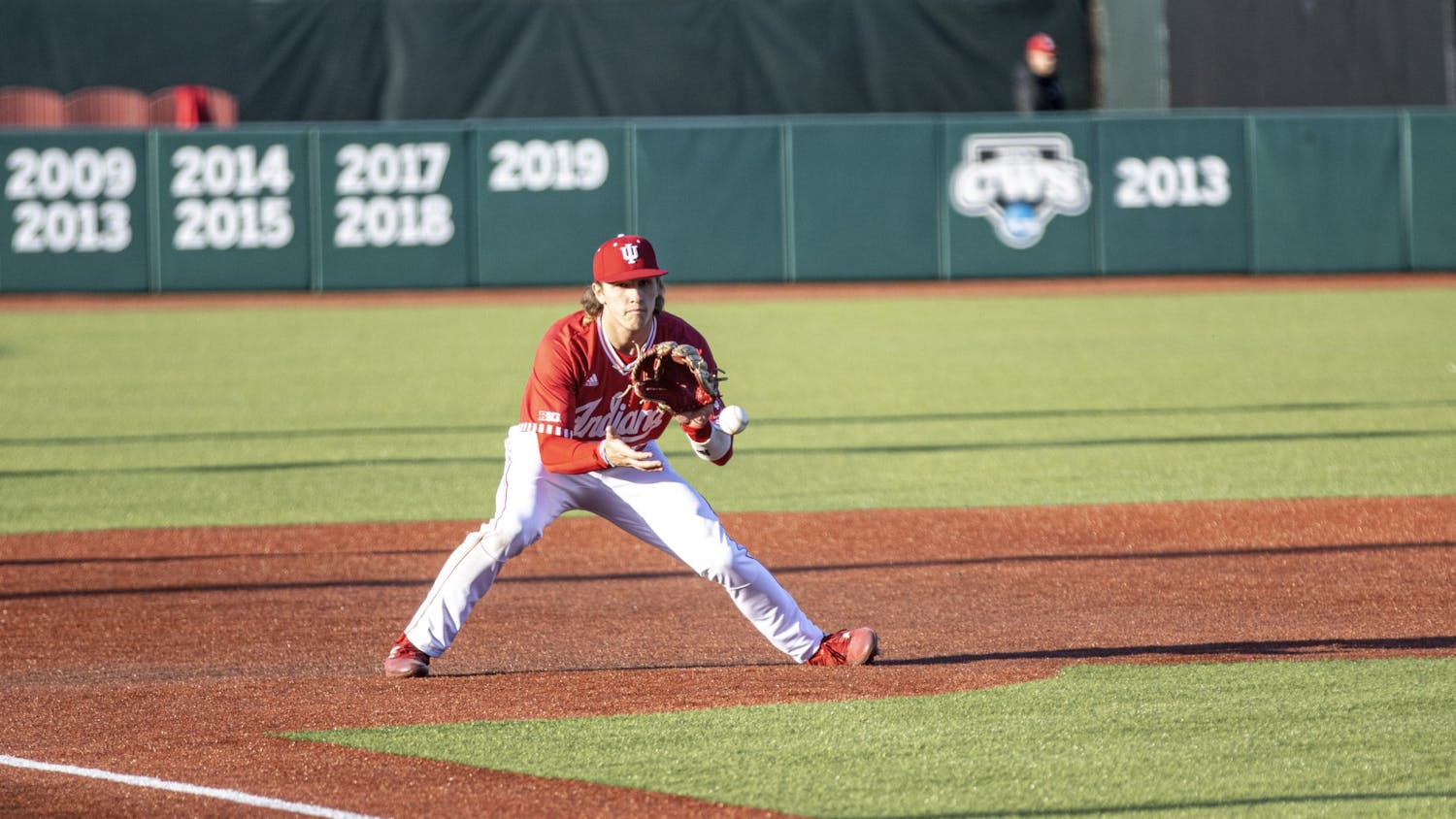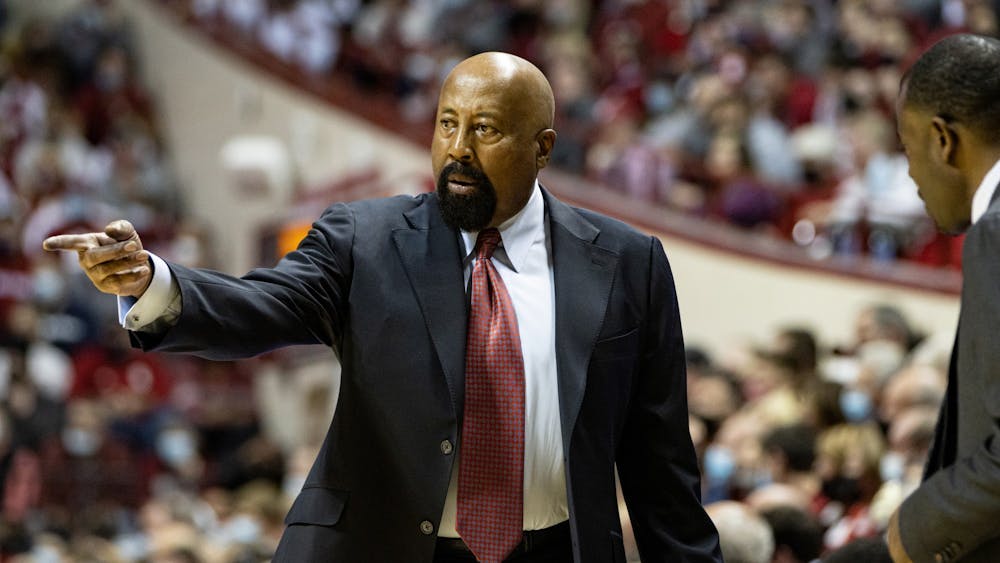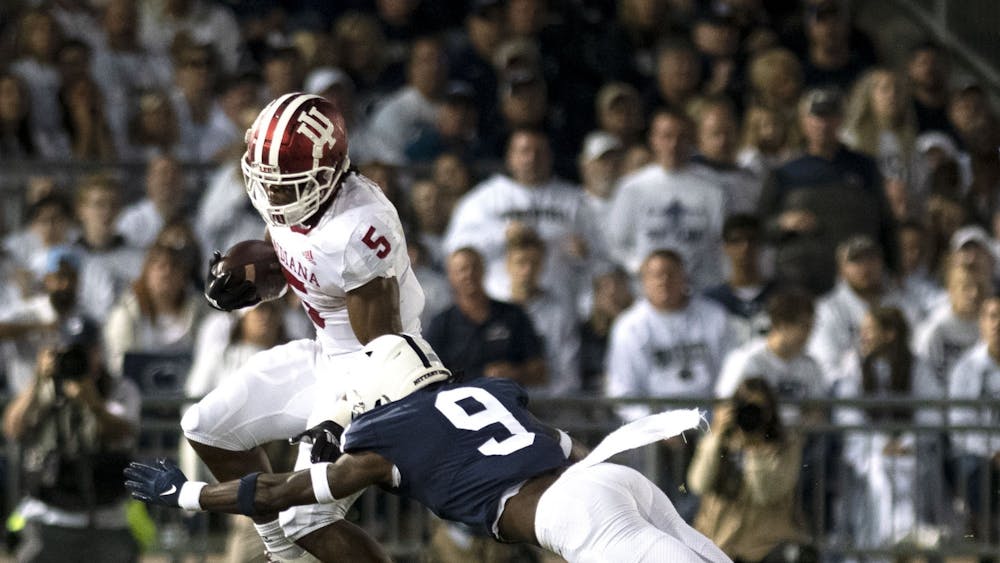What's that you say? Gambling on college athletics is a nationwide problem involving both athletes and fans? Well, surprise, surprise. Did we really need a study to tell us that next to pro football, NCAA sports is a bookmaker's best friend?\nA newly-released NCAA report on sports gambling showed that 3.5 percent of male athletes and 10 percent of female athletes have bet on college sports in the last year. While the fact is that student-athletes have a tendency to make a contest "a little more interesting," it is the number of athletes who have admitted to altering their performance to change the outcome of a game that has shocked so many.\nBut none seem as appalled as NCAA president and IU's own Myles Brand. As the year-old czar of the NCAA, Brand has been the most outspoken on issues such as gambling and academics in his quest to put the "student" back in student-athlete. \nWhenever the NCAA releases a report on gambling, low graduation rates, corrupt recruiting or the over-emphasis on money making, Brand is front and center in the media voicing his disgust. But when we look back at his track record, looking down from a bank of microphones is all Brand seems to do.\nIt's a simple Tennessee-Two-Step. Step one is identifying the problem. Step two is making the necessary changes to fix it. And it looks to me like we need to sign the NCAA up for dancing lessons.\nIn a press conference following the NCAA report's findings Brand said, "The scope of sports wagering among intercollegiate student-athletes is startling and disturbing. Sports wagering is a double threat because it harms the well-being of student-athletes and the integrity of college sports."\nWhile this statement shows the NCAA is taking a stand on an obvious problem, what is missing from his speech is what he plans to do about it.\nThis lack of reform does not only apply to the recent issue of gambling, but to several other issues Brand has spoken out against. One year ago, the NCAA released one of its (in)famous reports on the effects of alcohol on fans at college sporting events, with no suggestions made as to what to do next. \nAgain -- a news flash for you. Who knew alcohol was such a prevalent force on college life? I just figured that "Animal House" was a gross misrepresentation of campus life.\nAnd again, after speaking out on the harm alcohol has done to NCAA events, there have been no policy changes and no suggestions. Anyone can identify that gambling and alcohol are two huge problems on college campuses. But what is missing in each report are what actions the NCAA wants to take to curb these poor results.\nNow, don't get me wrong. Brand's stance on these important issues is no doubt the right stance and a step in the right direction. Before Brand, such issues were assumed and shrugged off as the NCAA continued to make money hand-over-fist. But we have yet to see anything concrete come of the dozens of surveys and forums Brand has created.\nWe saw nothing from Brand following the investigation of several alleged recruiting violations on the Colorado campus. When Georgia was caught handing out third grade tests to 20-year-olds, the NCAA was mysteriously hiding in the shadows while the university policed its own.\nWhile these scandals certainly give college athletics a black eye, the NCAA could be capitalizing on them by using these infractions to kick-start massive policy changes.\nWhile Brand has only had about 18 months in office, it is unrealistic to expect a drastically different NCAA. But in the wake of several opportunities for change, nothing has been changed for the better. It is as if Brand is the square dance leader -- chanting out do-si-dos and orders to swing with your partner. \nBut If I were a gambling man, I'd put my savings on the status quo. Because last time I checked, Brand and the NCAA were sitting this dance out.
Don't bet on Brand
Get stories like this in your inbox
Subscribe





